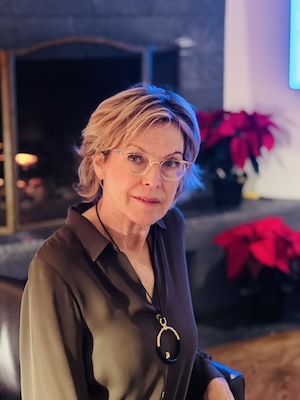
Sasha Wade
Contest - Prose Poem
Sasha Wade was born and raised in New York City. An attendee of The Bread Loaf Writers Conference, Sasha also holds an MFA from Bennington’s Writing Seminars. Her poetry has been published in Rust + Moth, The James Dickey Review, Third Wednesday, Front Porch Review, The American Journal of Poetry, and The Chestnut Review. Sasha is currently working on her first book of poetry.
Where My Mother Goes
Even though we are in our sixties, we do what sisters do—talk about the past, compare childhood notes, compete. My sisters say, of the three of us, I am the closest to our mother—who, they now claim, was never easy to be close to. Unlike my father, who was always hugging us, my mother showed her love from a distance. A child had to learn to read her, like a still-life painting that changed with light, or a piano concerto. When I was four, my grandmother died; she was fifty-nine years old. Our mother grew very quiet and tired. Every morning on his way to work, our father dropped my older siblings at school. After everyone left, my mother and I walked to St. Agnes Church to light a candle; I said the only prayer I knew, “Hail Mary,” over and over again to myself. After church, we stopped at the butcher, who always gave me a slice of bologna, and then Entenmanns bakery for fresh bread, or white crumb coffee cake. We lived on the first two floors of a brownstone at 32 Montgomery Place in Brooklyn. The brownstones on the block were the color of reddish-brown clay, and they all had stoops with black iron railings. In front of each building stood a small, thin tree that was held up by three ropes in the shape of a triangle. The Dwyer family lived on the top two floors. Sometimes we played with their children outside, but we hardly ever saw Mrs. Dwyer. My mother said Mrs. Dwyer had too many children. After lunch, my mother went back into her bedroom, closed the shades, and closed her eyes. I followed her. She always left a box of crayons and white paper on her bedside table. I wasn’t tired, so I learned to draw on the floor next to the window where there were slits of daylight. Sometimes, when my mother was asleep, I played with a special doll that she kept in her bottom bureau drawer next to a pile of rosary beads wrapped in tissue paper. The doll wore a red dress, and her long arms were raised half-way up in the air as if she was dancing a wild dance and something stopped her. I didn’t tell my sisters about the doll. It was a secret, like when someone dies and no one talks about what happened. While I was alone in the room with my mother, I also learned that her love for her mother was so enormous, a part of her heart had to rest, so it could travel where my grandmother had gone. I learned silence, too, and what a room feels like when something is broken but never falls.
